Nat Parry reflects on a Democratic theme — which Biden raised in his withdrawal announcement last week — that their party will protect democracy from Donald Trump.
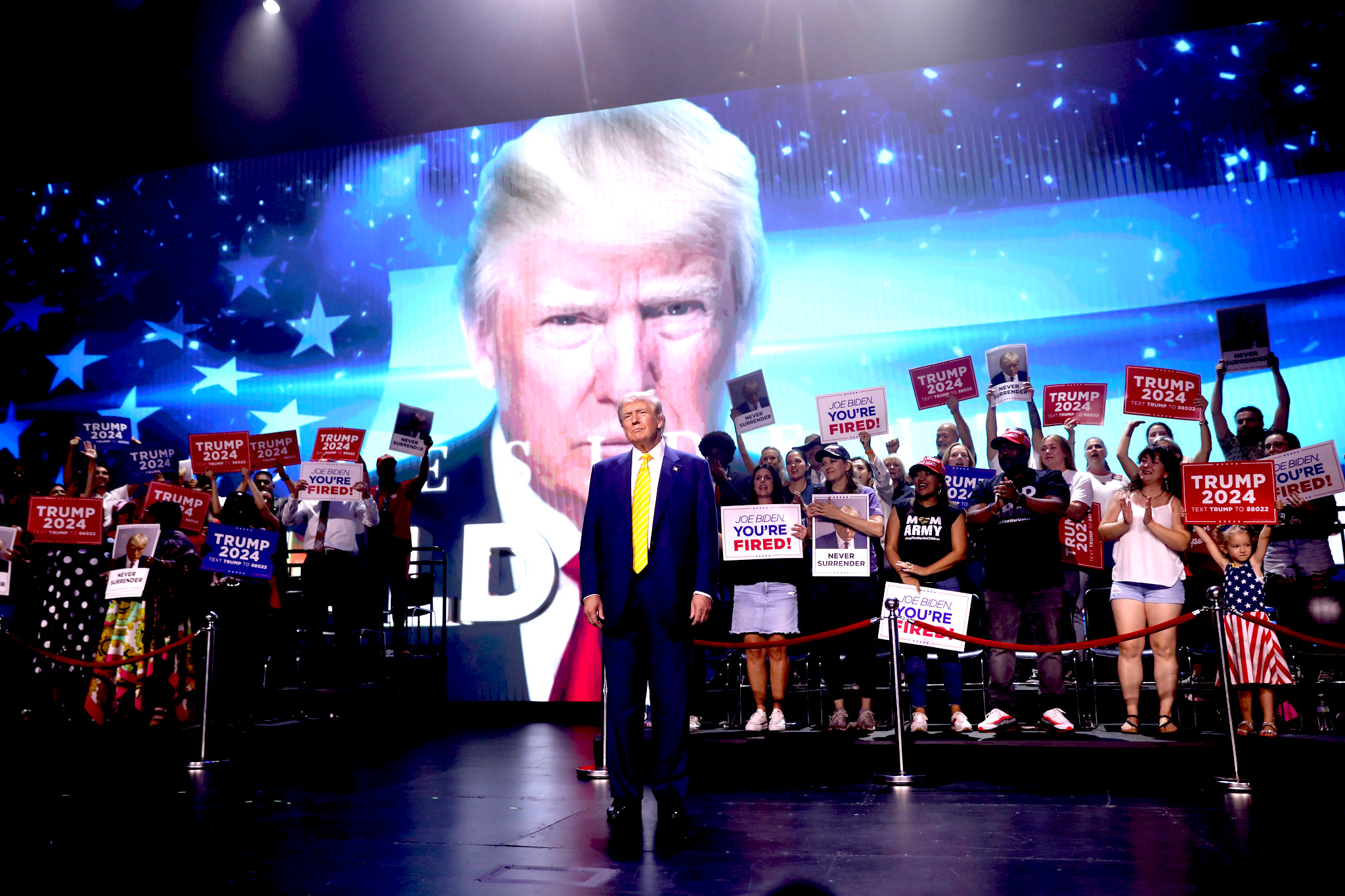
Former U.S. President Donald Trump at a 2024 rally in Phoenix in June. (Gage Skidmore, Flickr, CC BY-SA 2.0)
By Nat Parry
Special to Consortium News
 Election 2024 veered into surreal and uncharted territory this month with an assassination attempt on the Republican nominee and the withdrawal of the Democratic nominee within eight days of each other, unprecedented events in a single campaign that have cast a pall over the democratic process in the United States.
Election 2024 veered into surreal and uncharted territory this month with an assassination attempt on the Republican nominee and the withdrawal of the Democratic nominee within eight days of each other, unprecedented events in a single campaign that have cast a pall over the democratic process in the United States.
Many questions remain to be answered about the near-murder of Donald Trump at a rally in Butler, Pennsylvania, on July 13 — including how the shooter Thomas Matthew Crooks managed to carry out his act despite the Secret Service identifying him as a suspicious person who was allowed to fly a drone over the rally site that day and why Trump was allowed to take the stage instead of delaying the event to investigate the situation. Some are naturally wondering whether a conspiracy may have been involved.
“I think most reasonable people can conclude based on all of the statements, media reports, law enforcement statements, whistleblowers et cetera that this was allowed to happen,” stated conservative commentator Tim Pool on his podcast.
After all, as some Trump supporters have posited, the Washington establishment has been trying and failing to neutralize Trump for nearly a decade through the so-called Russiagate hoax, two impeachments, four indictments and numerous attempts to remove him from the ballot. The assassination attempt, according to this view, would follow a pattern of escalation in the ongoing campaign to eliminate “the Trump threat” once and for all.
In this vein, nearly a year ago, Tucker Carlson predicted that Trump would fall victim to an assassination attempt, pointing out that it is the last option available to his political enemies after trying nearly everything else.

Aerial photograph of Butler Farm Show Grounds, on right, in Butler, Penn., taken 10 minutes prior to an attempted assassination of Donald Trump on July July 13. (Designism, Wikimedia Commons, CC0)
“If you begin with criticism, then you go to protest, then you go to impeachment, now you go to indictment and none of them work. What’s next? Graph it out, man. We’re speeding towards assassination, obviously,” Carlson said on The Adam Carolla Show in August 2023.
At the time, Carlson was lambasted by the mainstream media for “stoking conspiracies” and making outlandish claims that were “presented without evidence.” Following the July 13 assassination attempt, however, right-wing activists insisted that Carlson had been vindicated, and demanded apologies from those who had criticized him a year earlier.
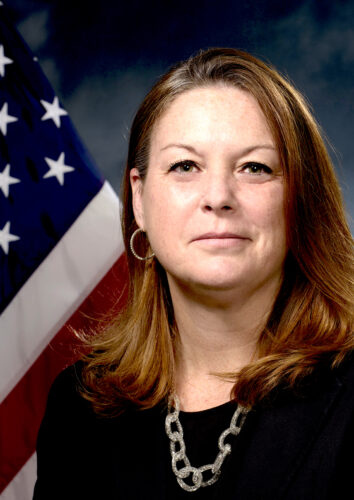
Kimberly Cheatle in 2018. (U.S. Department of Homeland Security, Wikimedia Commons, Public domain)
Of course, there is still no clear evidence that a conspiracy was involved in the Butler shooting, but there was at minimum a high level of ineptitude that helped enable the assassination attempt, leading both Democrats and Republicans to demand accountability.
Following a contentious House Oversight Committee hearing in which Secret Service Director Kimberly Cheatle was told she was “full of shit” and faced repeated calls for her resignation, she decided to step down the next day. In her resignation letter on July 23, Cheatle stressed that the Secret Service is “based on integrity and staffed by individuals of exceptional dedication and talent,” acknowledging though that it “fell short” of its mission “to protect our nation’s leaders.”
Trump, however, placed the blame squarely with the Biden administration. Following Cheatle’s resignation, the former president posted on TruthSocial: “The Biden/Harris Administration did not properly protect me, and I was forced to take a bullet for Democracy. IT WAS MY GREAT HONOR TO DO SO!”
Biden Steps Down
The day after Cheatle resigned, Joe Biden addressed the nation to try to explain his withdrawal from the presidential race three days earlier. The 81-year-old stated that his primary motivation for suspending his campaign was to protect American democracy — echoing a theme that the Democratic Party has been touting for years, namely, that Trump and his MAGA movement pose an existential threat to the republic and that electing Democrats is the only hope for preserving American liberty.
Just a few lines into his address, Biden cited “the defense of democracy” in justifying his decision to withdraw, which he had been vehemently resisting since his disastrous debate performance in June. “Those of us who cheri[sh] that cause — cherish it so much — the cause of American democracy itself — must unite to protect it,” Biden said. He added that “nothing — nothing — can come in the way of saving our democracy.”
In order to do so, Biden declared that he had “decided … to pass the torch to a new generation,” calling it “the best way to unite our nation.”
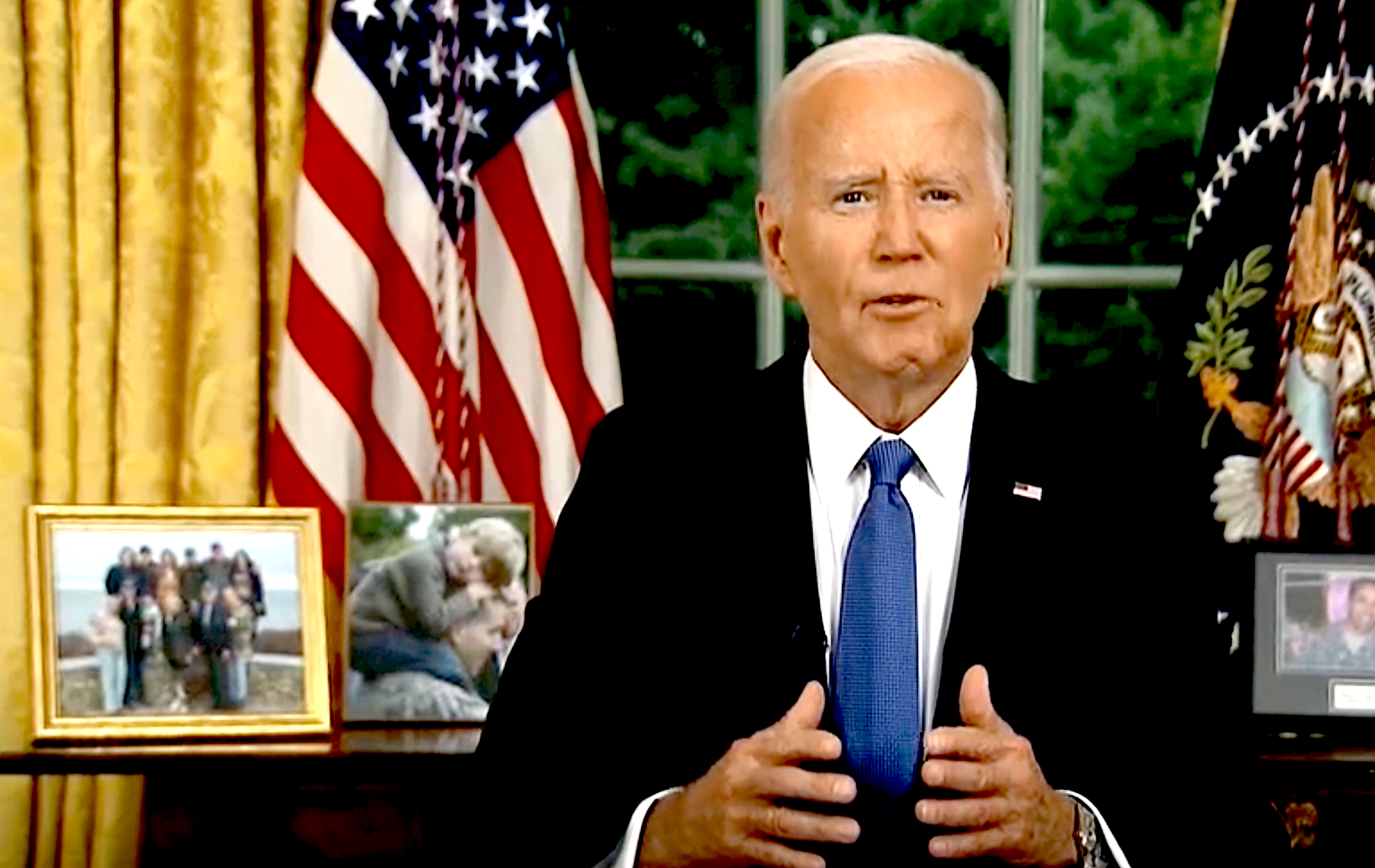
Biden addressing the nation last week about his decision to drop out of the 2024 race. (C-Span still)
Left unsaid by the president was the inconvenient truth that nothing about the transfer of the Democratic Party’s nomination to Vice President Kamala Harris — which will presumably take place at the Democratic National Convention being held in Chicago from Aug. 19-22 — could be considered “democratic” in any traditional sense.
Harris, of course, had not received a single vote from Democratic Party primary voters, who on the other hand cast a total of 14.5 million ballots for Joe Biden during the primary elections. Biden made this point himself in a defiant letter to House Democrats a couple weeks earlier in which he adamantly said “that despite all the speculation in the press and elsewhere, I am firmly committed to staying in this race, to running this race to the end, and to beating Donald Trump.”
Biden pointed out in his July 8 letter that there was a “nomination process” in which the “voters have spoken clearly and decisively,” casting “over 14 million votes” for him, or “87 percent of the votes cast across the entire nominating process.”
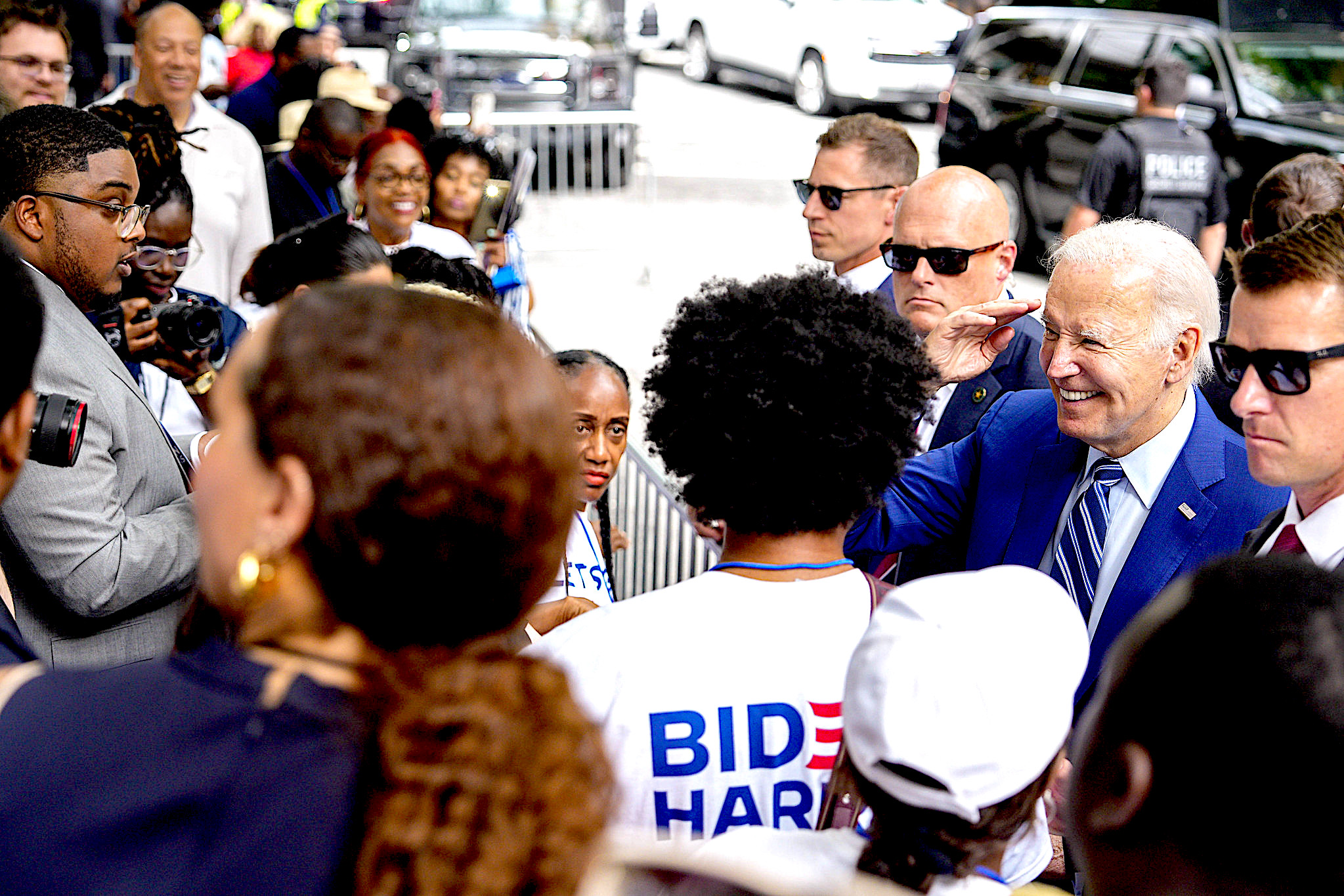
Biden with supporters in Atlanta on June 27. (David Lienemann/Biden for President, CC BY-NC-SA 2.0)
Biden claimed that the primary “was a process open to anyone who wanted to run,” and a few people chose to do so, with “one far[ing] so badly that he left the primaries to run as an independent.” Candidates running for the nomination included Dean Philips, Marianne Williamson, and Jason Palmer, who received a combined total of more than a million votes.
The most prominent primary challenger, Robert F. Kennedy Jr., could have received more than the totals of Philips, Williamson and Palmer, perhaps, had he not withdrawn from the primary elections in September 2023 after determining that a fair contest was not possible. The Democratic National Committee, Kennedy complained, was implementing rule changes and introducing novel procedures to hinder competition and help the incumbent.
There was nothing secret about these efforts by the DNC to ensure that Biden would be anointed the nominee without the messiness of an open and competitive primary election.
As Democratic Party insider Symone Sanders declared in May 2023, “the Democratic National Committee will not facilitate a primary process,” pointedly stating that “there will be no debate stage for Bobby Kennedy, Marianne Williamson or anyone else.” Speaking on MSNBC’s “Morning Joe,” Sanders said that the DNC is “not going to set up a primary process for debate to — for someone to challenge the head of the Democratic Party.”
Not only did the DNC make clear that it would not hold open debates between Biden and his primary challengers, but it also decided to move the first primary from New Hampshire — where Biden had performed poorly in 2020 — to the more Biden-friendly state of South Carolina. The strategy seemed to be designed to ensure that the first contest resulted in a clear victory for Biden to help cement the image of his nomination’s inevitability.
In a letter to DNC Chair Jaime Harrison, then-chair of the Kennedy campaign Dennis Kucinich noted that the Biden campaign appeared to be directly involved in shaping the DNC’s primary rules and that the DNC had created a new class of superdelegates — in contravention of the restrictions on superdelegate voting power implemented after the debacle of 2016 — who were empowered to thwart the will of the people.
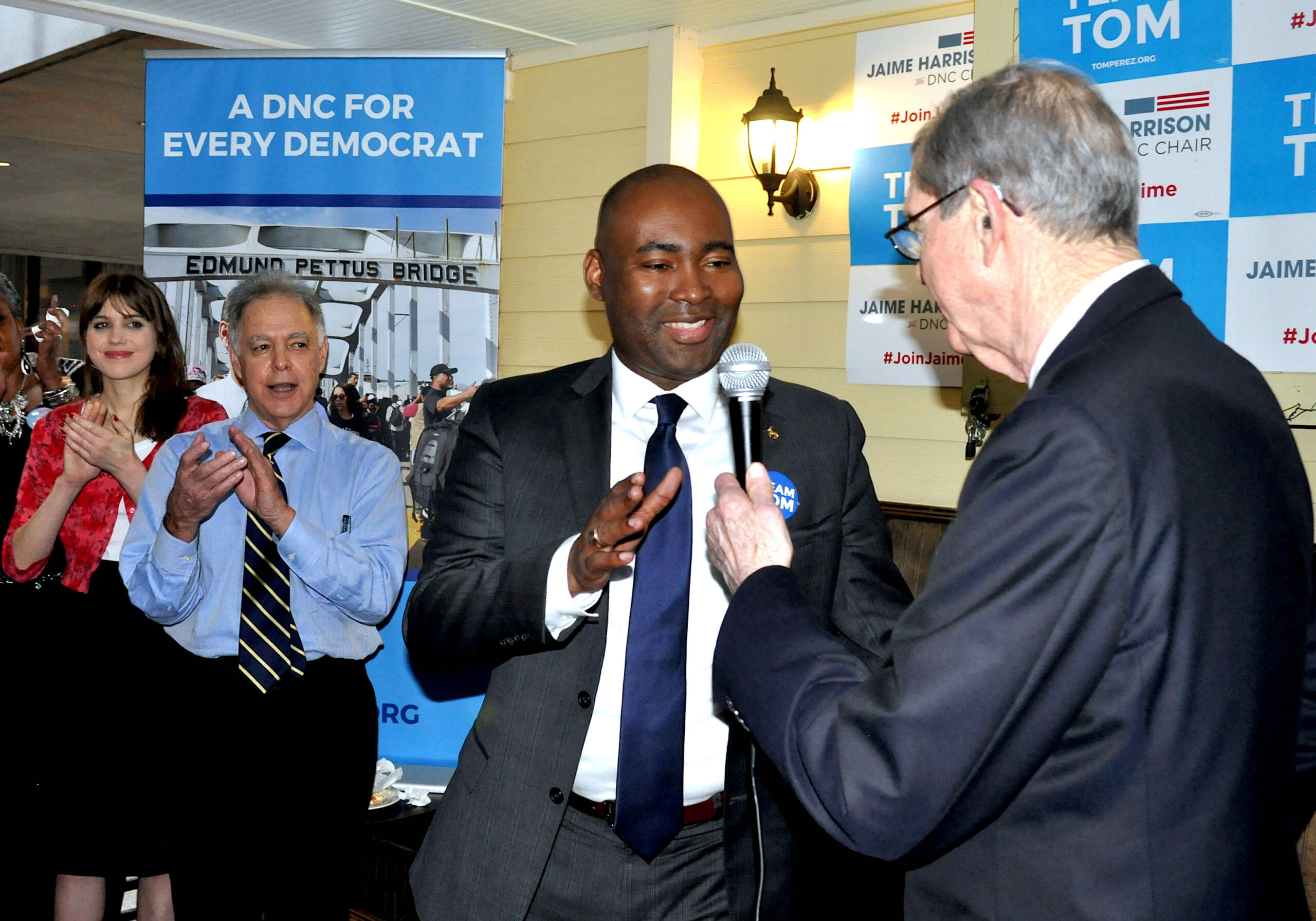
Jaime Harrison in 2017. (Edward Kimmel, Wikimedia Commons, CC BY-SA 2.0)
“Unfortunately, it appears that the DNC has created a class of pledged delegates, called Party Leaders and Elected Officials (PLEOs), who are essentially the same as superdelegates, due to the amount of control the party exercises over elected officials,” Kucinich said. “This puts the DNC, once again, in the position of overturning the will of voters across the United States.”
In response to the DNC’s rule changes, Kennedy recalled the long history of anti-democratic practices within the Democratic Party which primary elections were designed to overcome.
“The DNC seems to have forgotten the purpose of the modern primary system to begin with,” Kennedy said, “which was to replace backroom crony politics with a transparent democratic process.” He added that “if the Biden campaign thinks they can win with administrative tricks and evasions, they will be in for a rude surprise in both New Hampshire and South Carolina.”
Ultimately, however, Kennedy reached the conclusion that the DNC would not allow a meaningful challenge to Biden and decided to abandon the Democratic Party. As a Kennedy campaign insider told Mediaite in late September 2023, “Bobby feels that the DNC is changing the rules to exclude his candidacy so an independent run is the only way to go.”
Shortly thereafter, Kennedy announced his independent bid.
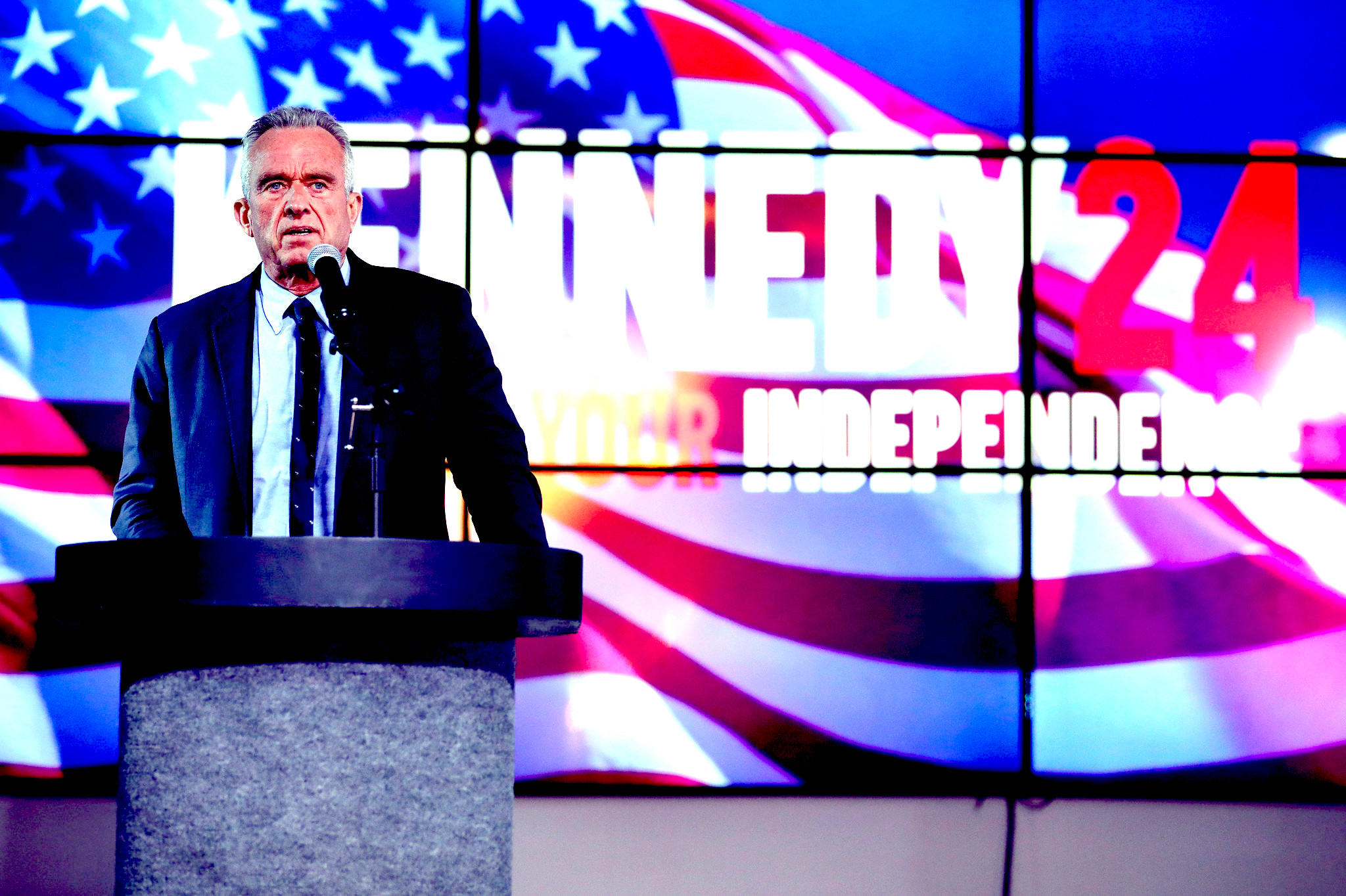
Kennedy at a campaign rally in Phoenix in December 2023. (Gage Skidmore, Flickr, CC BY-SA 2.0)
“I’m here to declare myself an independent candidate for president of the United States,” Kennedy announced at a rally in Philadelphia on Oct. 9, 2023. “We declare independence from the cynical elites who betray our hope and who amplify our divisions. And finally, we declare independence from the two political parties.”
Third Party Alternatives
In declaring his independence, Kennedy had joined a long line of political figures — from Teddy Roosevelt to Robert La Follette to John Anderson — who had previously come to the conclusion that their views could not properly be represented within the limited confines of the two-party system.
By eschewing the Democratic Party, Kennedy also gave voice to some of the millions of Americans who support alternatives to the choices offered by the Democrats and Republicans — a whopping 63 percent of the American public who want to see more options on the ballot, according to polling by Gallup.
He also, however, joined a relatively crowded field of independents and third party candidates vying for the presidency in 2024, who all face an uphill battle in terms of gaining access to state ballots and garnering the attention of the national media.
Not only are the Libertarian and Green parties running candidates, but so too are the Constitution Party, the Party for Socialism and Liberation, and the American Solidarity Party, with varying degrees of success in attaining ballot access across the country. Navigating the complex patchwork of state ballot access laws — with various filing deadlines and signature requirements — is notoriously difficult, and currently only the Libertarians and the Greens are qualified for enough states to win the Electoral College, appearing on the ballot in 35 states and 23, respectively.
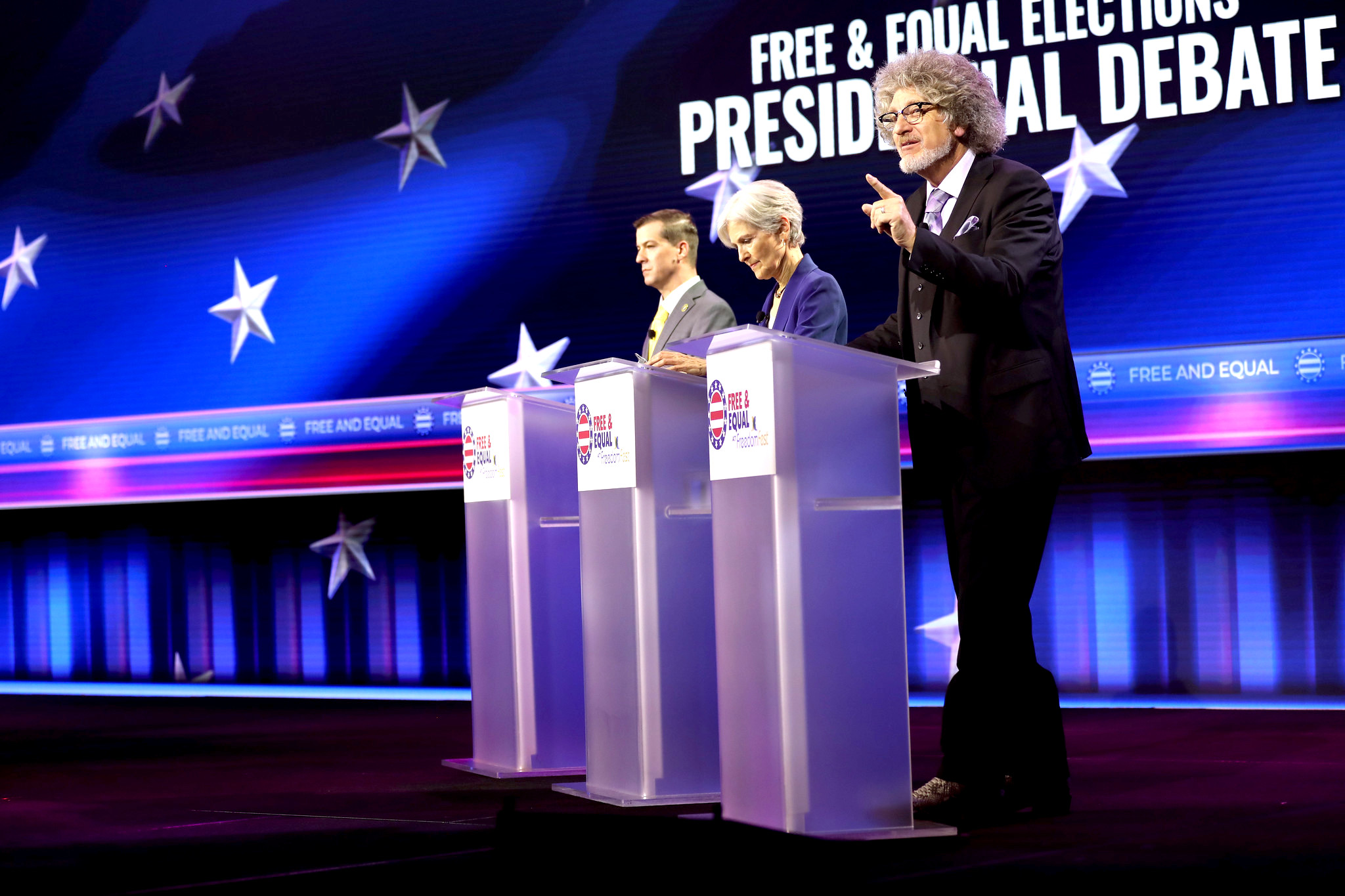
Presidential candidates from left: Libertarian Party’s Chase Oliver, Green Party’s Jill Stein and Constitution Party’s Randall Terry speaking at the Free & Equal Elections Presidential Debate in Las Vegas on July 12. (Gage Skidmore, Flickr, CC BY-SA 2.0)
Independent Cornel West, who has received nominations from a handful of small parties, is currently on the ballot in nine states. For his part, Kennedy is certified for the ballot in 15 states, with a combined total of 192 electors, and is awaiting certification in 17 more states with 218 electors.
The challenges to third party ballot access have been particularly pronounced in this election cycle, with the Democratic Party aggressively filing legal challenges to stop the candidacies of West and Kennedy, as well as the Green Party’s Jill Stein. The calculation seems to be that West, Kennedy and Stein might “siphon votes” from the Democratic Party’s nominee and therefore, in order to “protect democracy,” these candidates should be removed from the ballot.
In Nevada, despite collecting nearly 30,000 signatures — three times the legal requirement for ballot access — the Green Party has been challenged by Democrats who claim that some of the signatures do not meet the state’s requirements. Based on a limited review, the Democratic Party said that some of the signatures were collected before the Green Party filed its certificate of continued existence with state election officials in January and therefore should be invalidated.
The Democrats are also challenging Kennedy’s candidacy in states including Nevada, North Carolina, Texas and Georgia, and appear to be moving towards a challenge of his ballot status in Florida. Kennedy currently is certified for the Florida ballot as the nominee of the state’s Reform Party, but an attorney for the DNC sent the Florida Division of Elections a request for records in May relating to the Reform Party’s registration and its correspondence with the office, indicating that they are mulling a legal challenge.
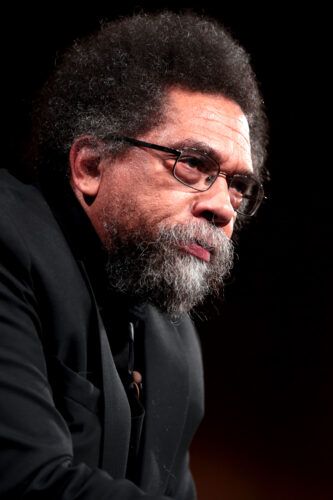
West speaking in Tempe, Arizona, in January 2018. (Gage Skidmore, CC BY-SA 3.0)
Cornel West has also found himself in the crosshairs of Democratic Party lawyers, who filed a complaint with the Federal Election Commission on July 19, alleging that “West’s presidential campaign’s efforts to gain ballot access in Arizona and North Carolina are largely being funded by illegal in-kind contributions from Republican-allied persons.” Specifically, Democrats claim that the firms Wells Marketing and Blitz Canvassing have improperly offered their ballot petition services.
The West campaign rejected the accusations and asserted that its signature-gathering efforts have been above-board and are fueled by grassroots activism. “This was courageous and visionary leadership,” West said. “And yet, we still encountered unwarranted and unfounded legal challenges and then a smear campaign trying to say that somehow we’ve been manipulated.”
In-Kind Contributions
But while hurling accusations against minor parties, the Democrats have come under accusations of their own, namely that they are benefiting from in-kind contributions by their allies in the mainstream media — particularly in relation to alleged collusion with media companies over the format of televised presidential debates.
Earlier this summer, the Biden campaign announced that it would not participate in events organized by the Commission on Presidential Debates (CPD), which had been organizing debates for decades under well-established rules. Citing “the interests of the American people [that] are best served by presidential debates that … allow a head-to-head comparison of the two candidates with a chance of winning the election,” the Biden campaign claimed that the CPD’s model for debates “is out of step with changes in the structure of our elections.”
CPD Co-Chairs Antonia Hernández and Frank Fahrenkopf expressed regret over the Biden campaign’s decision, stating that since its founding in 1987, the CPD has offered a neutral format that provides a “focus on the candidate and the issues that are most important to the American people.”
Instead of participating in the CPD debates, the Biden campaign announced that it would take part in two events organized by CNN, and pointedly noted that the “debates should be one-on-one, allowing voters to compare the only two candidates with any statistical chance of prevailing in the Electoral College — and not squandering debate time on candidates with no prospect of becoming President.”
Correspondingly, CNN announced stringent qualifications for participation in its debates, namely that candidates must receive at least 15 percent support in four national polls and have confirmed ballot access in enough states to potentially win a majority in the Electoral College.
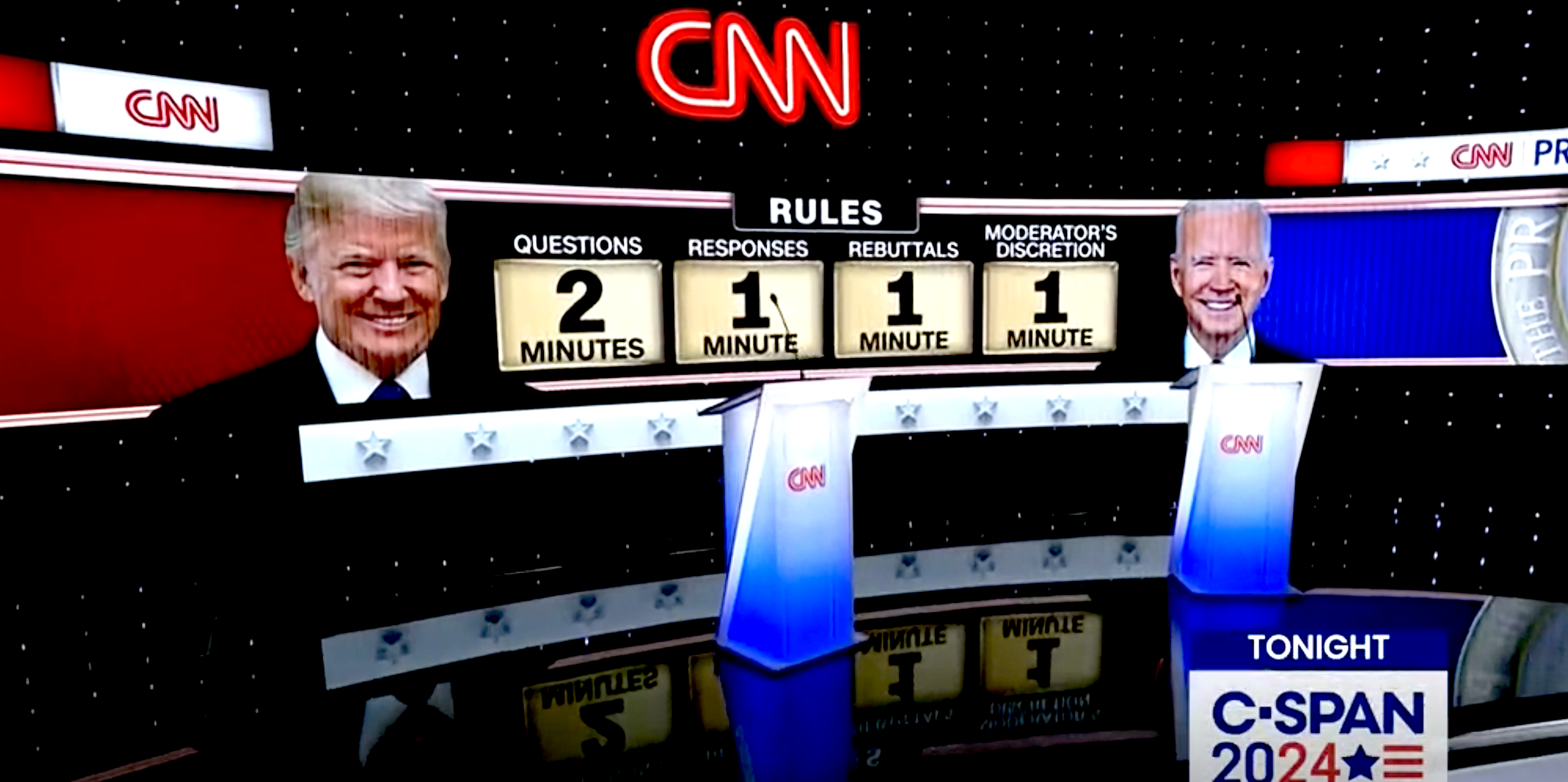
The Trump – Biden CNN debate on June 27. (C-Span still)
Despite polling at 15 percent in a HarrisX/Forbes poll, Kennedy hovers at about 9 percent in a national average, falling several percentage points shy of CNN’s criteria. His ballot access efforts also currently fall short of the 270 electoral votes needed to win the Electoral College, so, citing its rules, CNN declined to extend him — or any other third party candidate — an invitation.
CNN’s rules on ballot access have been criticized by outside observers as draconian and inconsistent.
It has been pointed out that CNN’s rules would have barred not only Kennedy and other third parties running in this election cycle, but indeed every independent presidential candidate for the last 112 years. With the general election still months away and many states’ filing deadlines not yet passed, the demand that all prospective candidates must qualify on enough ballots to win the Electoral College was premature and “probably written by individuals who had no knowledge of the typical timeline for presidential candidates running as independents,” Ballot Access News noted.
Further, CNN’s rules are not internally consistent, as they require certainty for independent candidates, but only probability for the Democratic and Republican candidates.
Since neither Biden nor Trump had been officially nominated by their parties at the time of the CNN debate, neither could prove that they would be on any ballots in November, and indeed, as we now know, Biden will not be the Democratic nominee after all. Therefore, CNN violated its own rules in giving Biden and Trump a platform while denying one to independent candidates, leading to a complaint being filed at the Federal Election Commission that the Democrats’ and Republicans’ arrangement with CNN amounted to an illegal in-kind contribution.
This, however, would be par for the course in U.S. elections, and largely in keeping with the benefits enjoyed by candidates of major parties. The advantages that Democrats and Republicans enjoy are substantial, with ballot access laws, guaranteed media coverage and massive disparities in funding being the most obvious.
While the two major parties, for example, are guaranteed ballot access in all 50 states, smaller parties must employ considerable resources in the uphill battle of getting on the ballot in just enough states to theoretically win the Electoral College.
Kennedy’s campaign is reportedly spending heavily on the effort, amassing debts, laying off staff members and diverting resources from other efforts as it becomes nearly singularly focused on getting his name on state ballots. This has left little money for events, organizing, advertising, and other traditional campaign priorities.
Meanwhile, enormous amounts of money continue to pour into the war chests of the two major parties, which are unburdened by the legal and procedural obstacles facing smaller parties and independents.
Money Talks
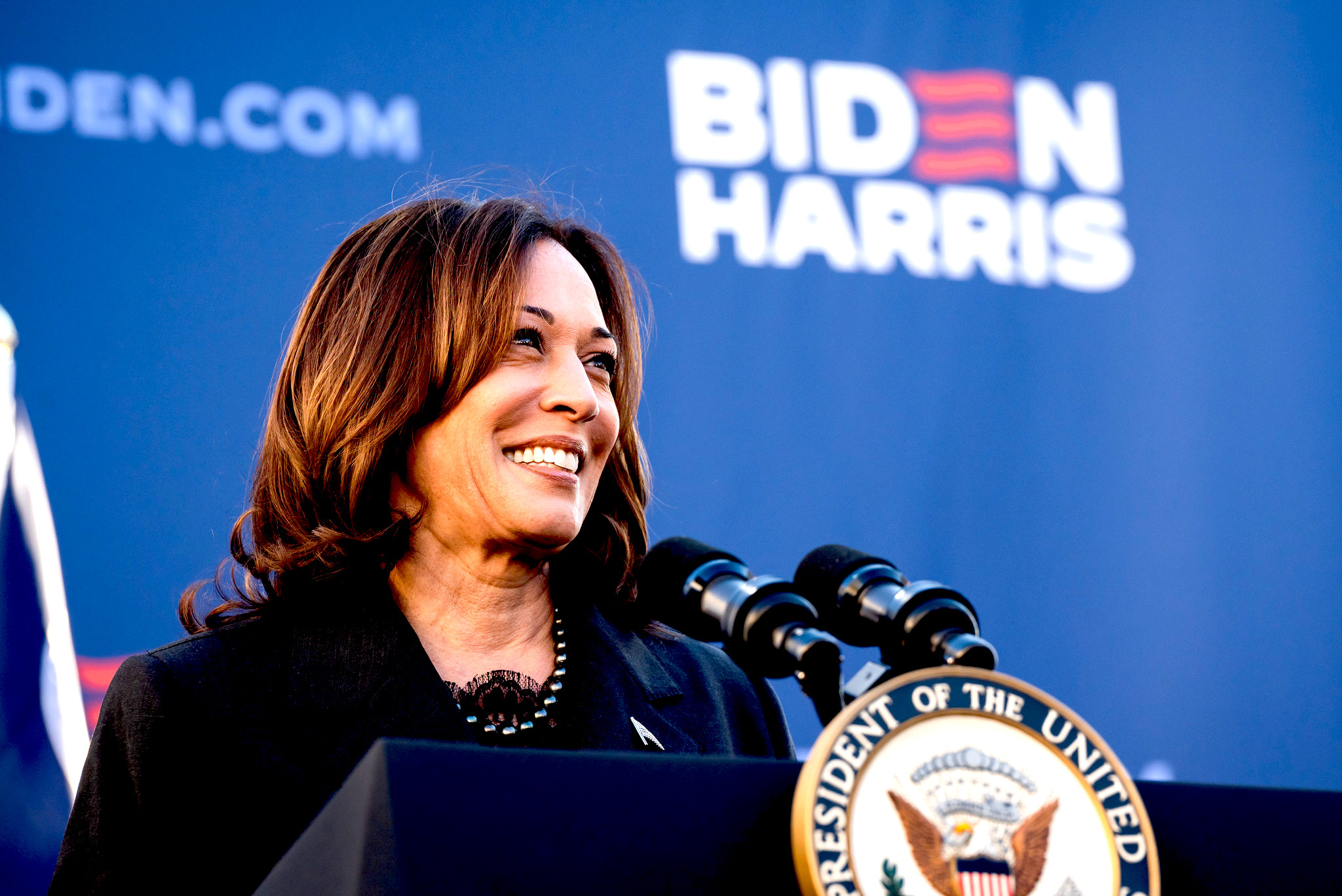
Harris at a primary rally in Orangeburg, South Carolina, in February. (Eric Elofson/Biden For President, CC BY-NC-SA 2.0 )
It’s too early to say how much money will be spent in this election cycle, but if recent trends continue, it could be expected to be tens of billions of dollars — almost all of which will benefit the two major parties. The bulk of this money will be spent on media expenditures, which in turn subsidize the lavish salaries of journalists and pundits covering the campaigns.
Four years ago, Open Secrets has reported, campaign financing totaled $14.4 billion, shattering records on political spending. The 2020 spending by Democrats and Republicans more than doubled the total cost of the record-breaking 2016 presidential election cycle and dwarfed the budgets of third parties. While Biden and Trump had more than $2 billion on hand for their campaigns, the Libertarian and Green candidates had just $2.8 million and $500,000, respectively.
When it comes to campaign financing in the 2024 election cycle, Democrats were given a major boost with the replacement of Biden by Kamala Harris, with record-breaking donations flooding in as soon as it was announced that Biden would step down.
Within 24 hours of Biden’s announcement on July 21, Harris raised $81 million — the largest one-day haul in U.S. history — and the following day received another $20 million. This $100 million cash infusion over a 36-hour period more than doubled the $96 million the Biden-Harris campaign had on hand at the end of June.
Although the Harris campaign has not said how much of the $100 million has come from small versus large donors, ActBlue, the Democrats’ online platform for processing donations, reported that small donors gave $46.7 million in the first seven hours.
As impressive as these small-donor numbers are, they may ultimately be eclipsed by the contributions of the Democratic Party’s more deep-pocketed funders. Future Forward USA, a PAC supporting Biden’s re-election, told Politico that it had received $150 million in new commitments from major donors since Harris launched her campaign.
Indeed, this may have been one of the primary motivations in replacing Biden with Harris. Not only were Democrats deeply concerned by his debate performance in June and his obviously declining cognitive state, but contributions from major donors had all but dried up as people began losing faith that he could beat Trump. In fact, several major donors reportedly threatened to halt contributions after the debate, leading to what Chris Hedges has called “Biden [being] discarded by the same billionaire class he assiduously served throughout his political career.”
In a recent article, Hedges noted that Biden “was their creature,” but ultimately, “his billionaire supporters pulled the plug.”
With Kamala Harris now anointed the Democratic nominee, despite not receiving a single vote in the primary elections, those billionaire supporters are supposedly the ones who will “save democracy” from the threat posed by Trump. Just what sort of democracy they are saving, however, is hard to tell.
Nat Parry is the author of the just-published book Samuel Adams and the Vagabond Henry Tufts: Virtue Meets Vice in the Revolutionary Era. He is the editor of American Dispatches: A Robert Parry Reader.

No comments:
Post a Comment